Every mama has a method for breastfeeding her baby. Some mamas nurse and pump. Some mamas exclusively pump. Some mamas exclusively nurse. Some mamas breastfeed on a schedule. Some mamas do ecological breastfeeding.
That last method is the focus of this post – not because I believe it is the only right way to breastfeed, but because it is the method I have experience with.
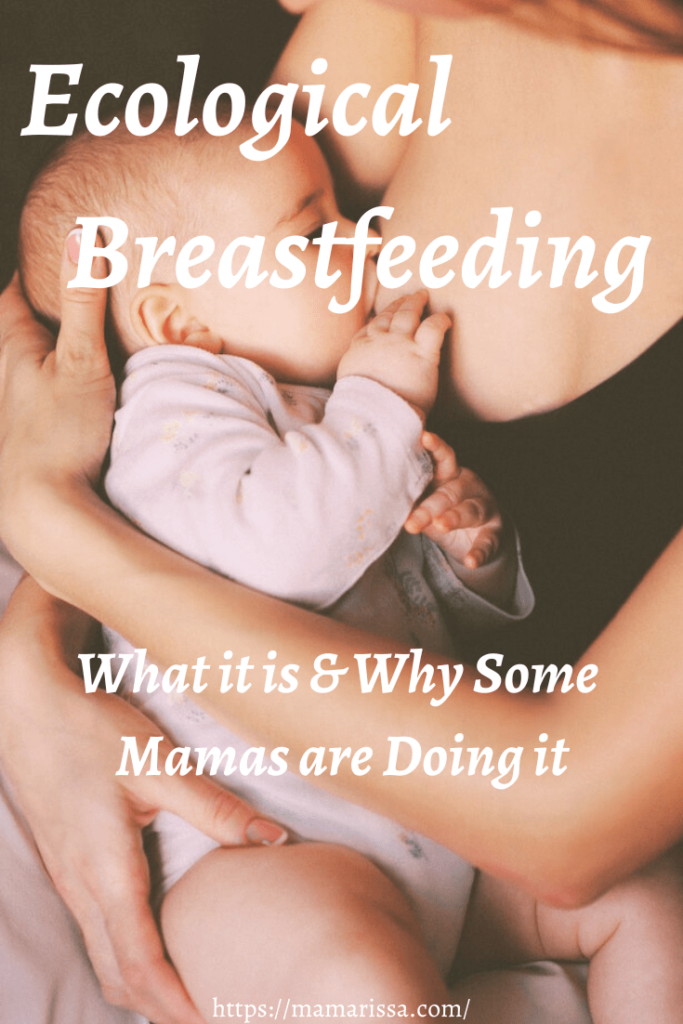
I did not search “Ecological Breastfeeding” while I was pregnant and decide it was the way I would breastfeed. In fact, I was completely unaware of the term until recently (20 months into breastfeeding).
Ecological breastfeeding is just a label that has been slapped onto a method of breastfeeding that has been used for centuries.
It is not something that was created by a lactation consultant. Simply put, it is the way babies naturally nurse if we let them.
But to be clear, ecological breastfeeding is not identical to exclusive breastfeeding. Let me explain what all ecological breastfeeding entails and why it is desirable to some mamas.
What is Ecological Breastfeeding?
When my daughter was born, I was determined to exclusively feed her breast milk and do things as naturally in caring for her as I had in birthing her (read my natural hospital birth story here).
Thinking about having a natural birth? Get my FREE guide to discover if it’s the right choice for you! Enter your email address here for access.
I had a breast pump and assumed I would use it because … Well, isn’t that just what breastfeeding moms do so they can go to an appointment or have a date night without the baby once in a while?
Spoiler alert: For moms who do ecological breastfeeding, a breast pump is among the Pinterest “Things You Will Never Use with Your Baby” lists..
I tried to use it a couple of times but couldn’t get more than a few drops of milk with it. The fact was, my daughter nursed too often for my breasts to ever be engorged.
I didn’t realize I was using a reemerging practice which is modernly referred to as ecological breastfeeding. All I knew was that I was meeting my daughter’s needs in a way I felt was the most natural and healthy way possible.
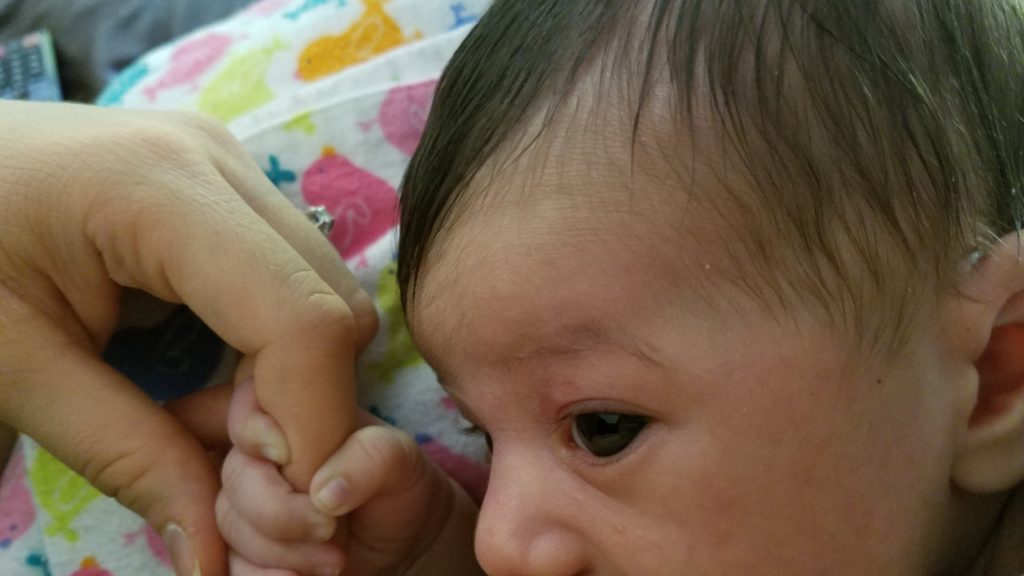
But some women intentionally work to make ecological breastfeeding happen (the reasons for which we will get to shortly).
If you are currently or soon will be breastfeeding, you may be looking for clarification about what criteria must be met for it to be considered ecological breastfeeding as opposed to exclusive breastfeeding.
Wondering what essential items you will need for your breastfeeding journey? Enter your email address here for my FREE Breastfeeding Preparation Checklist!
Following are the seven standards articulated by Sheila Kippley (read more info about her here) as the definition of ecological breastfeeding:
1. Breastfeeding Exclusively for 6 Months
Exclusive breastfeeding means, of course, no formula, water or solid food before 6 months of age. Exclusive breastfeeding fits within ecological breastfeeding. However, it does not encompass it.
2. Pacifying Baby at Your Breasts
Some people have a problem with moms who allow their babies to “use” them as a pacifier. I have to admit that I wasn’t necessarily a proponent of this idea either before I had my daughter.
But when nursing worked like magic at soothing my fussy baby, I assumed she needed the nutrition of my milk, especially since she has always been petite.
Ultimately, I didn’t care why she wanted to nurse as long as it was effectively meeting some kind of physical or emotional need.
My husband and I lived by the rule that our baby knew what she needed and we gave it to her. I do not believe you can nurse a one month old baby too often – especially a baby who is suffering with infant reflux as mine was.
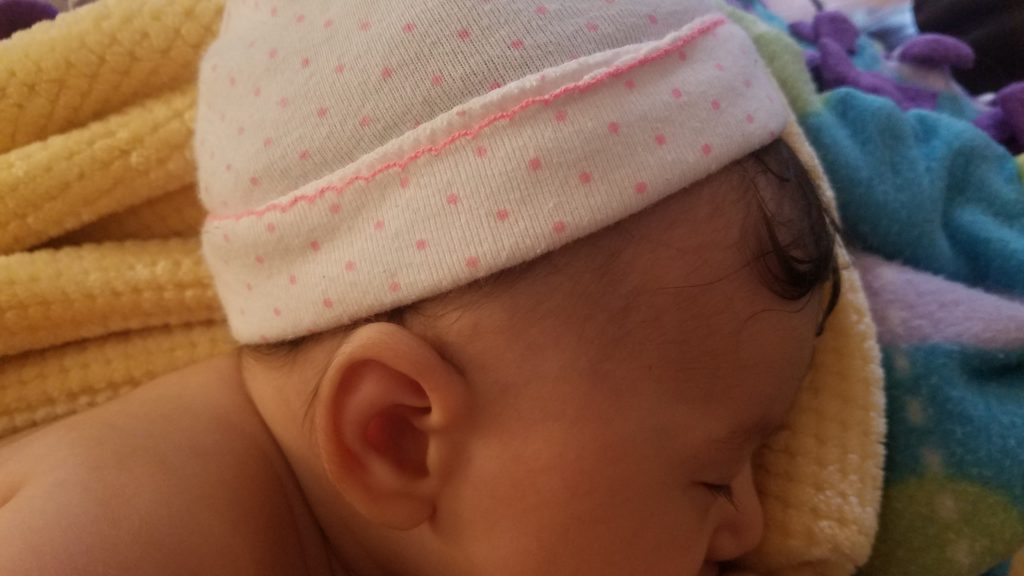
3. Avoiding the Use of Bottles and Pacifiers
Bottles and pacifiers, while certainly helpful tools for sleep- deprived and working moms, are literally a man-made substitute to what God originally designed perfectly Himself.
I am not at all against the use of either for mamas who choose to use them. But it just didn’t feel right for me to use them with my baby.
4. Sleeping with Baby for Nighttime Feedings
Most babies do not sleep through the night until you train them to (read here why sleep training is not right for every child).
Infants are growing – physically and intellectually – at an incredible rate and they generally need nourishment at least once or twice during the night. Co-sleeping with baby encourages frequent nursing that allows a mom to meet her baby’s needs without ever getting out of bed.
I personally was terrified of sleeping with my newborn daughter. But she would wake up every time I laid her down, and then I would have to nurse her to get her back to sleep. This went on all. night. long.
I had to find a way for me and my daughter to both get the sleep we needed. So I held her while I slept in a La-Z-Boy recliner while wearing this buckling nursing pillow and let her nurse whenever she wanted. We both got much better sleep this way than most new moms.

5. Sleeping with Baby for Daily Nap Feedings
Babies often will only fall asleep by sucking, whether on a pacifier or a breast. Part of ecological breastfeeding is allowing your baby to use your built-in pacifier as a means to sleep during the day the same as at night.
I did this, once again, out of necessity. While I didn’t usually nap with my daughter, I did nurse and hold her while she slept (find out 10 things you can easily do while stuck in the couch with a newborn here). For tired mamas who are able to nap during the day, this is a great way to get some more shut-eye.
6. Nursing Frequently Night and Day Without a Schedule
In other words, nursing on demand, whenever baby wants, regardless of when his last meal was.
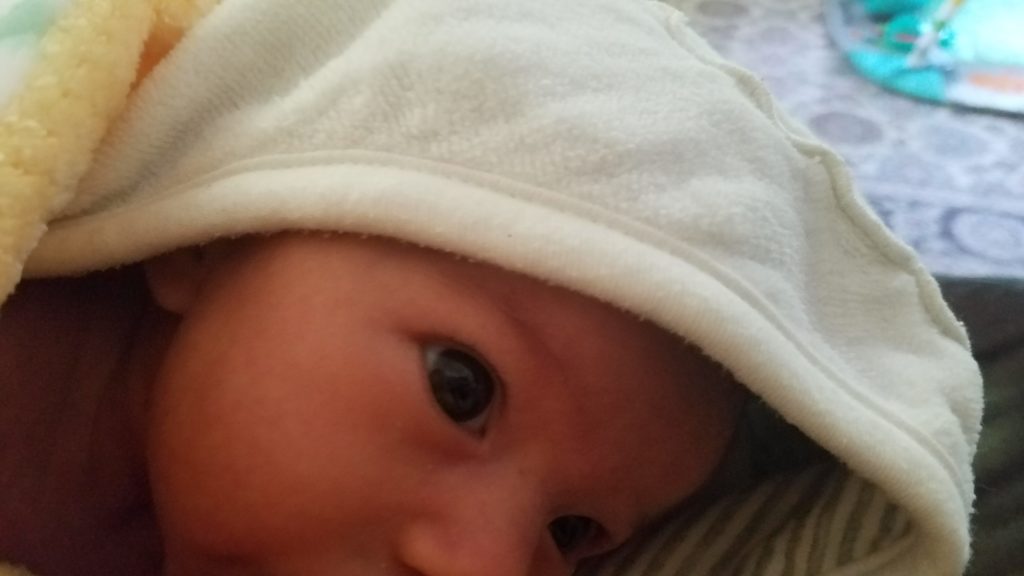
Some people insist babies need to be on a schedule. In reality, though, schedules are usually more about making life more convenient for the mom than they are about doing what is best for the baby.
I’m not saying you shouldn’t have a routine. Children often do better with consistent routines. But forcing baby to wait to nurse when he is clearly hungry simply because it isn’t “time” to eat can be detrimental to your baby’s health and your milk supply.
7. Avoiding Practices Which Restrict Nursing or Separate Mom and Baby
Examples of nursing restricting activities might include things such as having your baby sleep in a different room than you, leaving your baby in someone else’s care with pumped milk or formula, or giving your baby a pacifier.
My lactation consultant told me after my daughter was born that it was important to let her nurse when she wanted to suck rather than give her a pacifier.
She used the illustration of giving a hungry person a piece of gum to chew on instead of food. For young babies especially, even if they are doing a lot of “non-nutritive” sucking, they may still be getting some milk and they are still helping their mamas build up a faithful milk supply.
Ecological Breastfeeding Described in a Sentence
As I eluded to earlier, ecological breastfeeding is basically giving your baby free access to nurse whenever he wants to suck for hunger, comfort or any other reason.
So now you know what ecological breastfeeding is. But you may still be wondering what’s so great about being attached to your baby 24/7 without any help with nighttime feedings from your spouse or the ability to leave your child in someone else’s care for a few hours.
Well, there are a few different reasons some mamas choose this style of breastfeeding.
Why Do Some Moms Choose Ecological Breastfeeding?
To Naturally Space Pregnancies
The most common benefit of ecological breastfeeding you will find on Google is that it naturally spaces pregnancies. The whole trend of ecological breastfeeding was actually intended as a method of natural family planning for Catholic families.
Frequent nursing produces higher levels of prolactin in the mother ‘s body, a hormone that suppresses ovulation. Consequently, ecological breastfeeding makes it unlikely that you will conceive within a year of giving birth.
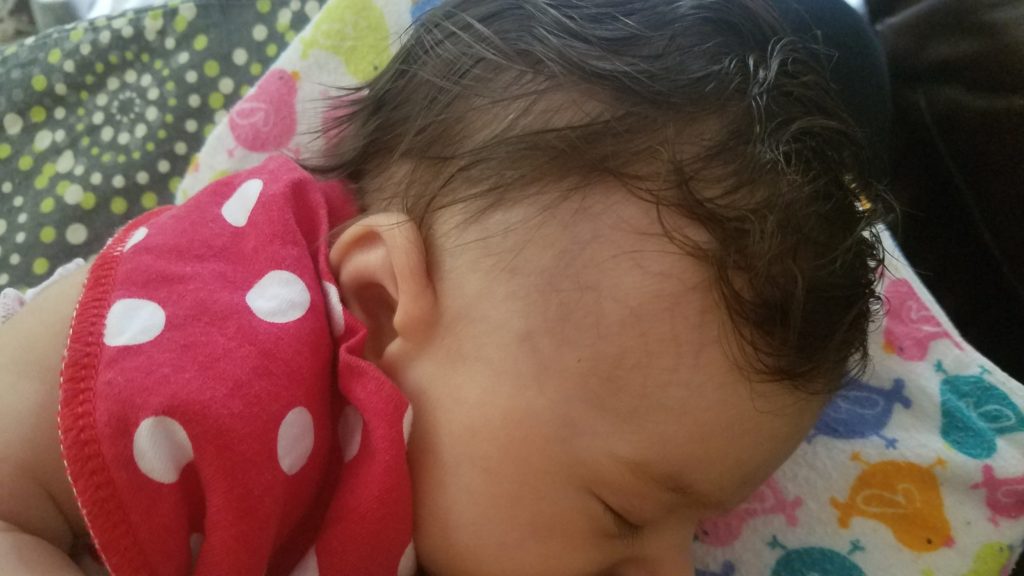
The average time it takes for an ecologically breastfeeding mama to start her cycle again is 14.5 months postpartum. However, some women go even longer.
Despite a couple of phantom periods while breastfeeding, I have yet to see the return of my cycle at 20 months postpartum. I’m sure this is due to the fact that my daughter still nurses very frequently night and day.
Again, note that exclusive breastfeeding is not the same as ecological breastfeeding and may not result in as long of a menstruation absence.
For women desiring to naturally space out their children, you will have the best chances of delaying ovulation by totally committing to ecological breastfeeding.
To Meet Baby’s Needs Naturally
To a “crunchy breastfeeding nazi mom” (as I have heard extreme natural moms referred to), ecological breastfeeding is an all natural, side-effect free remedy to everything from hunger and thirst to pain and fear.
There is a reason babies were designed to suck to sleep and suck to soothe. It’s in their nature and when that nature is nurtured, it is highly effective.
That instinct to suck can certainly be met with a pacifier, but some mamas want to offer a natural solution. For those mamas, ecological breastfeeding is ideal.
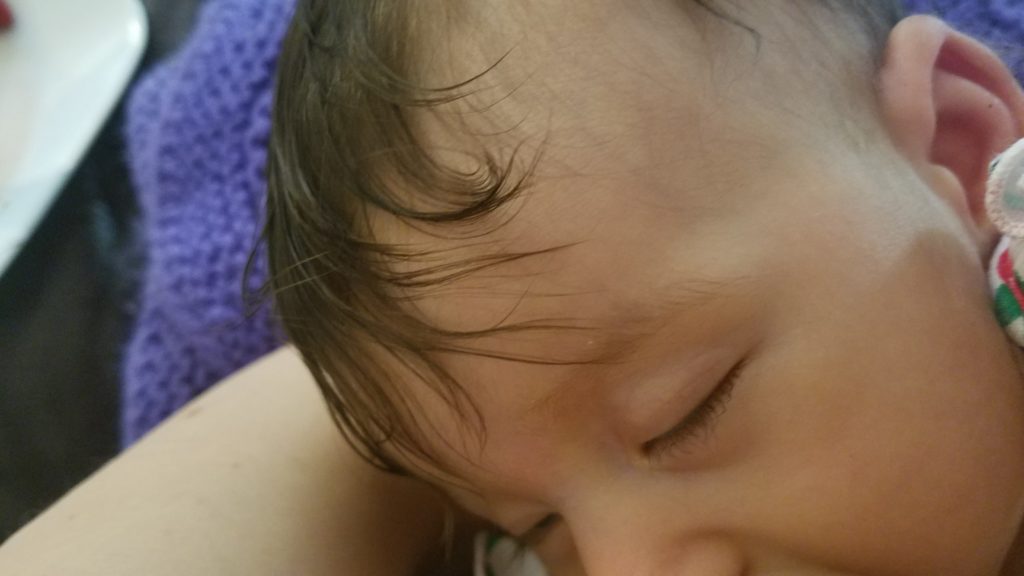
To Survive
If you read this reason and wonder what it means, you probably either haven’t had your baby yet or your baby is not excessively attached to her milk dispenser. If you read it and think to yourself, “Yes! That’s me!” then you and I probably have a lot in common when it comes to our children.
While I do value raising my daughter as naturally as I can, I also just couldn’t find a way to avoid having my daughter constantly on my boob without making her miserable.
Occasionally she could be soothed by other means, but for the most part, nursing has always been the most effective way to get my daughter to sleep, ease her reflux discomfort and provide her with a sense of security and safety.
And I consider myself blessed to have such an adequate way of meeting her physical and emotional needs.
Is This Kind of Breastfeeding Right for Every Mama?
So is ecological breastfeeding a good option for every mama? The quick and obvious answer is no.
I’m sure by now you have gathered that this style of breastfeeding is closely linked with certain styles of parenting (such as attachment parenting). No one style of parenting is going to work for every mom.
And to be honest, you can’t entirely plan how you will parent your child before she’s born.
Some aspects of parenting do not come from well thought-out ideas. They evolve out of the overwhelming love and unexplainable instincts a mother gains with the birth of her child.
And that is exactly how I ended up ecologically breastfeeding my daughter. It just happened naturally because it was what fit with my instincts and my daughter’s needs.
You do what works for you, your child, and your family, Mama.
What are your thoughts on ecological breastfeeding? I would love to hear your (respectful) opinion in the comments!
Hey Mama, if you find my blog posts helpful, would you help support this blog by making Amazon purchases through the links on this page? It will not cost you any extra but the commissions I receive as an Amazon Affiliate help to cover the costs of operating this blog so that I can keep it running ad-free. Thank you so much for your support. You are literally the reason this blog was started and the fuel that motivates me to keep it going!
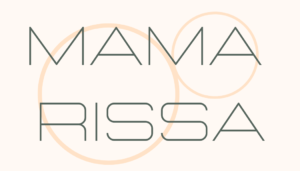
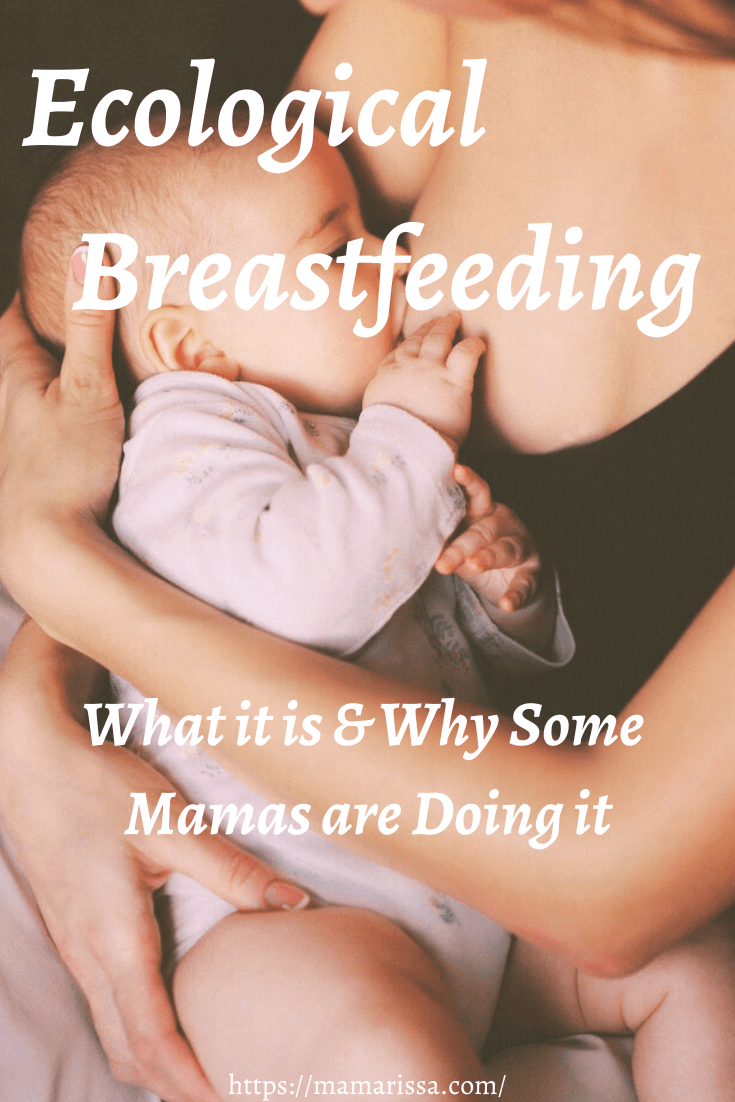

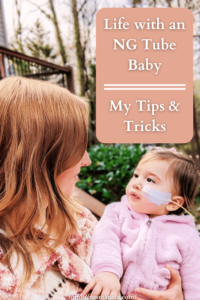
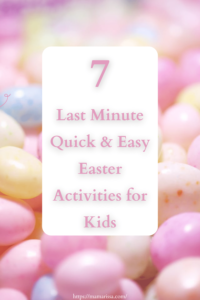
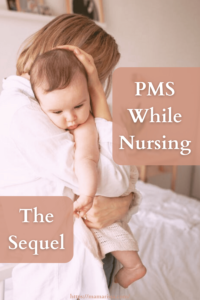
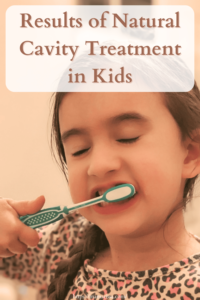
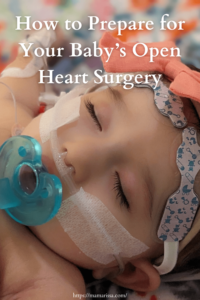
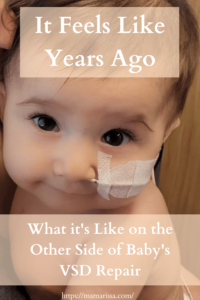
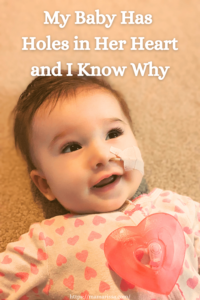
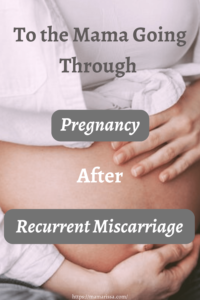
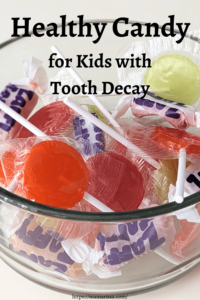
Leave a Reply